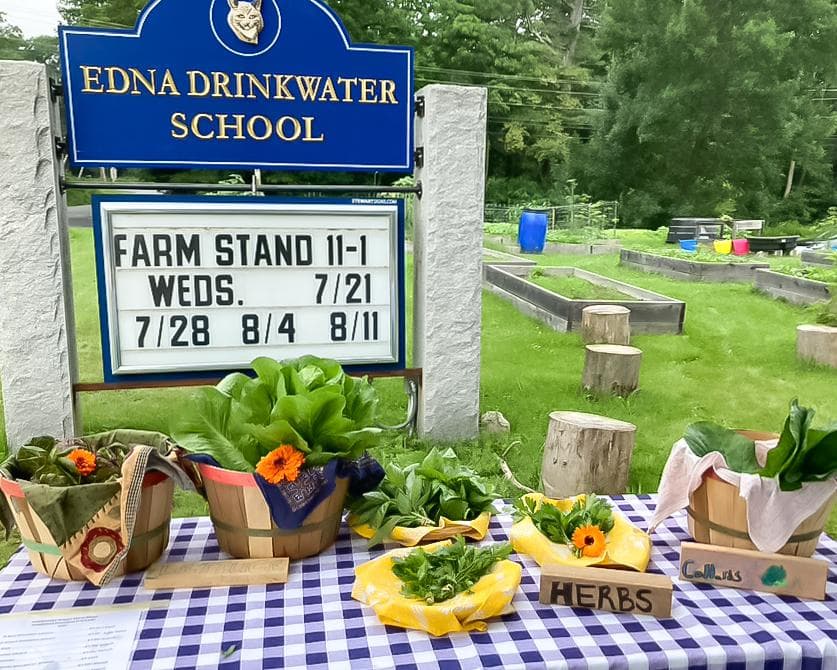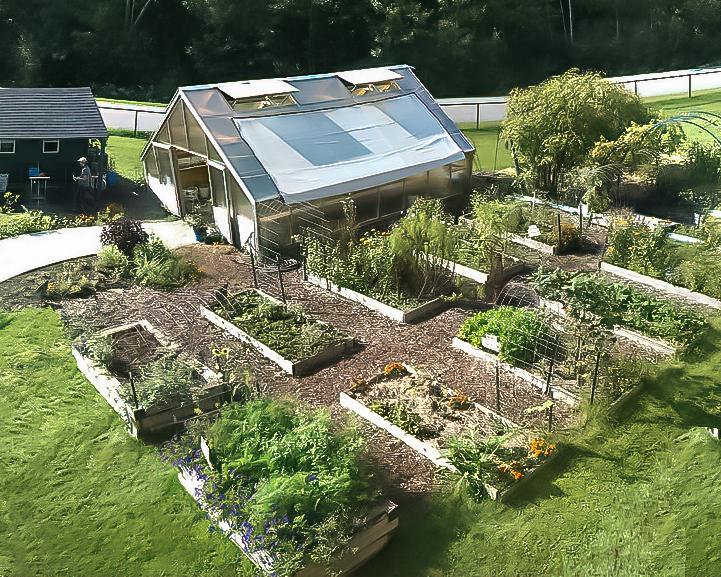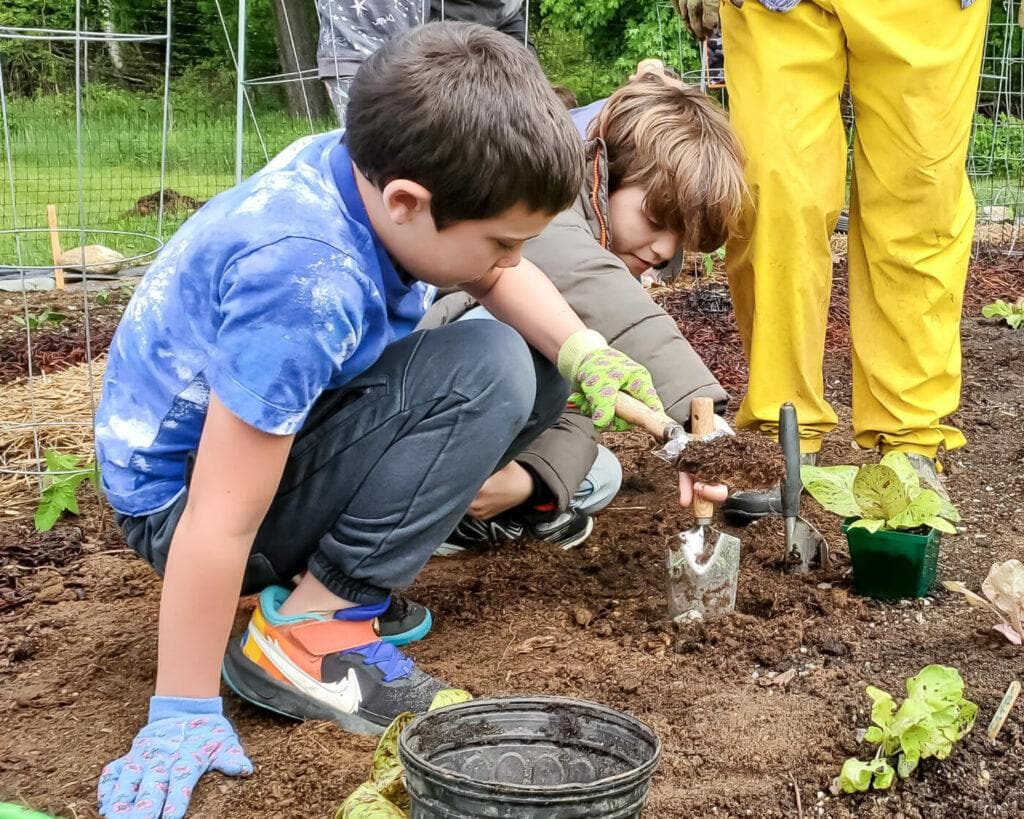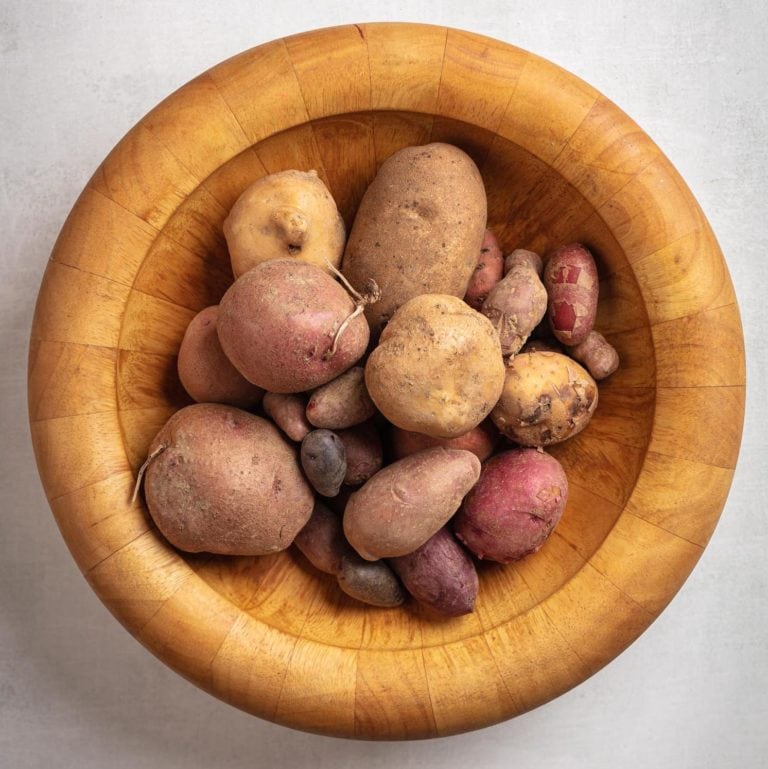“My mom has been trying to get me to eat kale for years,” a young, kale-admiring student proclaims.
The difference between Mom’s unsuccessful plea and the beloved sample? The kale’s life cycle was nourished, monitored, and harvested by the class in their school garden.
“It gives students power and autonomy to watch food grow, to pick and try it,” says Rachel Solomon, program organizer at the Maine School Garden Network (MSGN). “If they take ownership in watching a carrot grow from seed to harvest, it gives them an awareness of what they are eating and enjoying.”
This statewide nonprofit has over 200 registered school gardens that range from two small raised beds and one volunteer to outdoor classrooms with greenhouses and paid full-time staff. Joining the MSGN gives educators access to important resources for starting, teaching in, financing, and managing school gardens.

MSGN coordinator Susan Joy Sager says there are 200 school gardens registered, but she estimates there are many more. She encourages all schools to join to access the network’s resources, encouragement, and inspiration—even if they have a garden that’s just “a shovel in the dirt. You don’t have to wait until anything is perfect.”
The concept of outdoor classrooms isn’t novel, but school garden curriculums enjoyed a boom during the pandemic due to social distancing and getting students away from screens for part of the day.
A full school curriculum can be transformed outside. Solomon says, “Learning in the garden helps identify insects for science and uses math to count actual things, not just read it on a paper. It’s not only a way to connect students back to the environment, but also to each other.”
School gardens provide a wholesome context for hands-on learning from pre-K through high school. Students explore, create, troubleshoot, problem solve, and experiment. Working in a garden gives basic life skills, teaches responsibility, and encourages interaction with nature—an experience many don’t get at home. These programs cultivate future stewards of the land; they can lead to a career in sustainable education, agriculture, or botany.
And at a base level, they get kids eating healthy food.

Starting this spring, the MSGN is adding a Cooking in the School Garden component. It bridges the gardens and cafeterias to get student-grown produce incorporated into school meals. If you’re wondering why such a component is only being added now, it’s because substantial safety training had to be developed for washing, preparing, and storing that produce.
A void in the MSGN programming is during the summer, when student-gardeners aren’t there and produce is the most bountiful. Some communities have developed summer camps to keep the learning alive, but many rely on volunteers to water, weed, and distribute the harvests to food pantries or even set up farm stands.
Whether you have a school garden in your town or just a small pot of basil in your kitchen, the annual event that Sager encourages all to attend is Maine School Garden Day. This year’s event happens on Saturday, May 18th at the Kingfield Elementary School with the theme “Community. Classroom. Cafeteria.” The Hostel of Maine has partnered with the MSGN to give attendees an affordable local option to extend their stay and enjoy more workshops, tours, and networking.

There are many ways to support the MSGN, including starting a school garden or registering an existing one, volunteering, or donating funds. Sager invites readers to the network’s website to learn about the school gardens in their community and the MSGN’s many dedicated partners like Fedco Seeds and Maine Garden Products.
Nourishing opportunities for Maine students to learn and thrive in outdoor classrooms is impactful and sets our state apart. Sager says, “Maine is a very unique place. I don’t think we give enough credit to how ahead of the curve our state is. Very few states have a school garden network like we do.”
Please visit Maine School Garden Network for info and to register your school garden.














